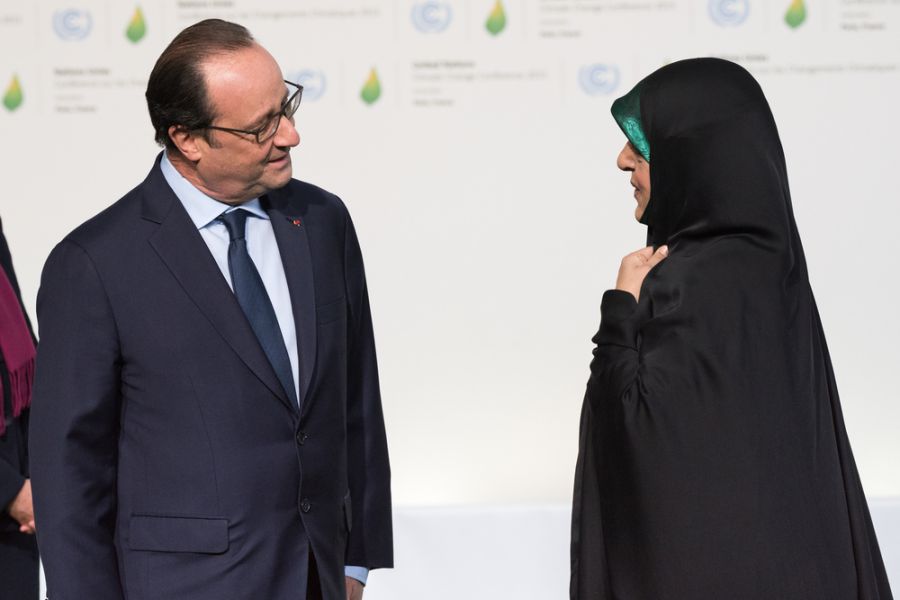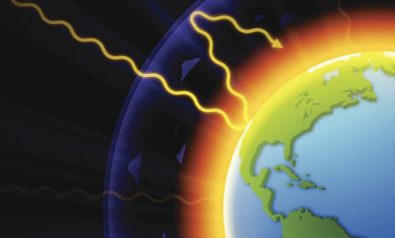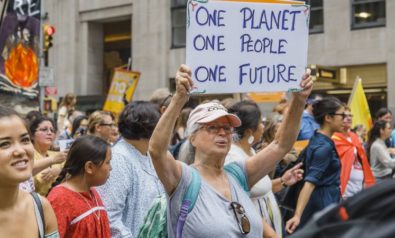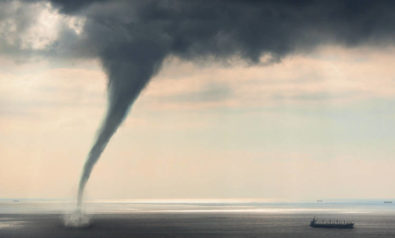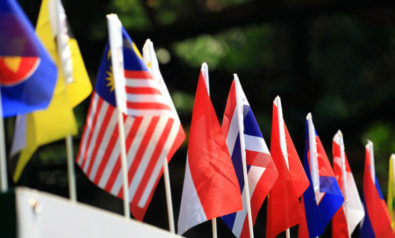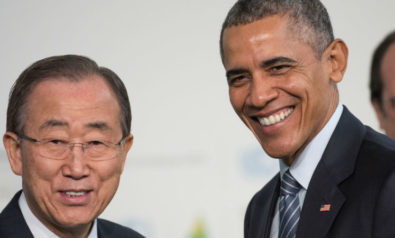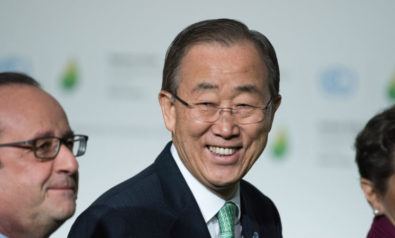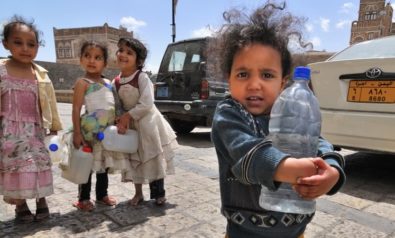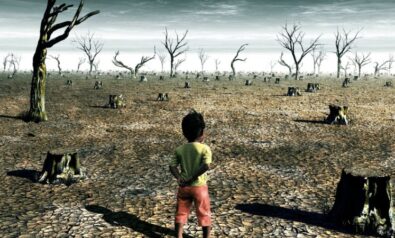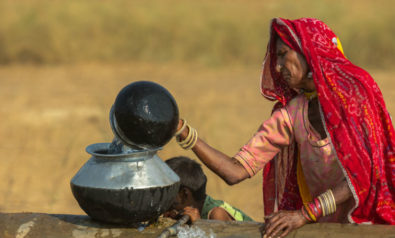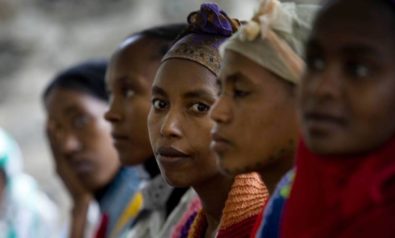The time has never been more ripe for putting the spotlight on women’s participation.
If you are this year’s Conference of Parties (COP21) in Paris or have been closely tracking the climate talks online, chances are that you have come across this photo showing the Leader’s Summit. This event, on the opening day of COP21, saw the participation of more than 150 world leaders who addressed the conference in a bid to draw attention to climate change and the need for a global climate treaty.
Since November 30, Le Bourget, the site of the conference in northern Paris, has seen everyone from scientists, academics, activists, farmers and CEOs converge to debate and discuss what has come to be called the most pressing issue of our time. But for those who have been closely analyzing country statements and commitments at the World Leader’s Summit, please pause and look at the photo again. Apart from the almost too noticeable black suits, there is something else you need to notice if you haven’t already: the women in the ranks.
For a conference that aims to achieve an equitable climate treaty, a world where women are underrepresented in most cabinets of government can hardly claim to have been successful. The UNFCCC, or the United Nations Framework Convention on Climate Change, officially declared December 8 as Gender Day at COP21. Throughout the day, there were different events centered on incorporating the role of gender into climate justice and the anticipated Paris agreement. These events targeted female heads of state, students, grassroots leaders and indigenous women leaders.
However, by declaring a particular day dedicated to gender, we stand the danger of bypassing real action if women are not even present at the negotiating table. In order to ensure that women are key agents in the actual decision-making processes, engaging their leadership at all levels must be a key element of any successful strategy to combat climate change.
Women Are Heavily Affected by Climate Change
In many countries, women are the first line of defense against the effects of climate change. Including their knowledge, experience and input will make natural resource management and efforts to reduce climate change more successful. As Phumzile Mlambo-Ngcuka, executive director for UN Women said, “While world leaders negotiate a climate change agreement, a mother in Ethiopia will make the difficult choice to take her daughter out of school to help in the task of gathering water, which requires more and more time with each passing year.” Thus, not only does gender need to be included in the agreement, but women need to hold positions in party delegations and UN secretariats.
According to the World Economic Forum’s Global Gender Gap Report, women have only now started earning what men did a decade ago, with the report suggesting that it will take another 118 years to close the global gender gap across health, education, politics and economic opportunity.
For negotiators mulling over clauses and articles at COP21, this dimension cannot and should not be ignored. It is something to say that we want a gender responsive climate agreement and another thing to have hardly any women contributing to that agreement. So far, most gender-related discussions were pushed to the Gender Day, with only some interventions being made by women’s groups at side events and a few main plenaries. But this is COP21. Which means that we have had 20 meetings precede the current one in Paris. Have we done enough to represent the voice of the other half of the world?
It is easy to be content at the sight of groups of indigenous women walking past the booths in the Climate Generations Area or to see the Women and Gender Constituency at COP21 lobby furiously. But the fact still remains that women’s representation in bodies and boards of the UNFCCC ranges from 36% to 41%. The numbers drop to 26-33% for female heads of national delegations. Only one in five authors of the 2014 IPCC fifth assessment report and eight of 34 IPCC chairs, co-chairs and vice-chairs are women. Importantly, even though media coverage of climate change has increased significantly, only 15% of those interviewed on climate have been women. Disappointing when the head of the UNFCCC is herself a fearless and far-sighted Costa Rican woman: Christiana Figueres.
But women are not ones to be pushed to the sidelines easily. For anyone currently at the talks, a quick walk around the exhibitions and booths at COP21 reveal an interesting modus operandi. Among the scores of displays and stalls, it is hard to miss some. Take, for instance, a group called “Moms for Earth,” who are there to fight for the rights of their children; or “Wpower,” a group showcasing solar cookers and fruit driers for women in rural areas, or the Association Shamengo, a group displaying green architecture ideas designed by women. These displays not only fuel discussions around sustainable innovation, but also send out a strong message: that we cannot hope to have a sustainable future with half of the global potential underutilized. If we could harness the creativity and talent of women, imagine the perspectives and insights that more women would bring to the same Leader’s Summit.
The time is now
The past few weeks have seen major announcements to herald the Paris agreement: the International Solar Alliance; a Fossil Fuel Subsidy Reform Communiqué; pledges to the Least Developed Countries Fund, among others. In between these were some that focused directly on gender, including an announcement by the African Development Bank to pledge affirmative climate finance action to boost agriculture business for women and a UN Climate Resilience Initiative with a focus on women’s vulnerability. As COP21 winds down, let’s hope that gender stays high on the political agenda and is not relegated to some nondescript part of the agreement.
Indeed, there is no dearth of issues to cover at COP21 with each more complex than the other. There is also no denying that leaders face a daunting task in doing justice to addressing all of those issues. But of what use is political will if it is crippled by lack of women’s representation?
The time has never been more ripe for putting the spotlight on women’s participation. It is high time that we see more women at the tables—and not just in numbers, but also in spirit. There is time before we pass a judgement on the success of Paris, as indeed future generations will one day, but one thing is clear. There are two ways in which Paris could be remembered: for making history or repeating it. Let’s hope we will choose wisely.
The views expressed in this article are the author’s own and do not necessarily reflect Fair Observer’s editorial policy.
Photo Credit: Sergei Bachlakov / Frederic Legrand – COMEO / Shutterstock.com
 We bring you perspectives from around the world. Help us to inform and educate. Your donation is tax-deductible. Join over 400 people to become a donor or you could choose to be a sponsor.
We bring you perspectives from around the world. Help us to inform and educate. Your donation is tax-deductible. Join over 400 people to become a donor or you could choose to be a sponsor.
Support Fair Observer
We rely on your support for our independence, diversity and quality.
For more than 10 years, Fair Observer has been free, fair and independent. No billionaire owns us, no advertisers control us. We are a reader-supported nonprofit. Unlike many other publications, we keep our content free for readers regardless of where they live or whether they can afford to pay. We have no paywalls and no ads.
In the post-truth era of fake news, echo chambers and filter bubbles, we publish a plurality of perspectives from around the world. Anyone can publish with us, but everyone goes through a rigorous editorial process. So, you get fact-checked, well-reasoned content instead of noise.
We publish 2,500+ voices from 90+ countries. We also conduct education and training programs
on subjects ranging from digital media and journalism to writing and critical thinking. This
doesn’t come cheap. Servers, editors, trainers and web developers cost
money.
Please consider supporting us on a regular basis as a recurring donor or a
sustaining member.
Will you support FO’s journalism?
We rely on your support for our independence, diversity and quality.



